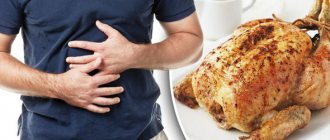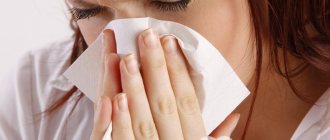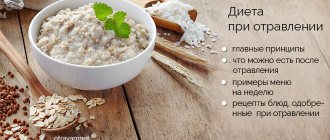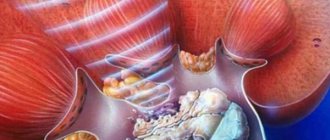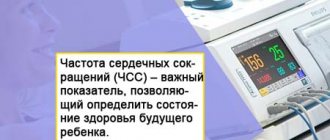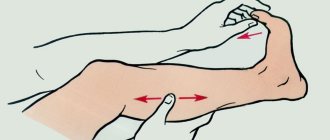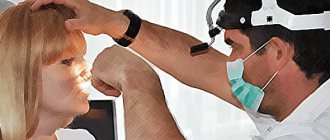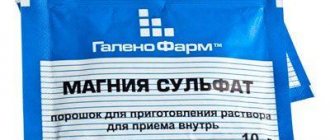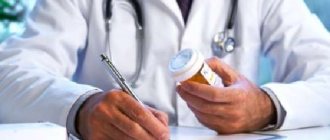Symptoms of food poisoning
The disease develops very quickly - from two hours to a day. The first signs of poisoning include:
- nausea after eating is the very first symptom, which is also accompanied by belching with an unpleasant odor, as well as heaviness in the stomach;
- vomiting - brings slight relief, can be repeated - first with leftover food, and then with liquid; in case of prolonged nausea, bile and the contents of the small intestine leave the body;
- elevated temperature is a sign that toxic substances from the stomach have entered the blood; temperature readings fluctuate depending on the amount of toxins;
- migraine attacks, weakness of the whole body, pain in muscles and joints;
- pain in the abdominal area - occurs due to spasm of the thin walls of the stomach;
- a decrease in blood pressure occurs due to the fact that the tone of the arteries decreases;
- diarrhea - sometimes blood can be seen in the discharge - this indicates that clostridia toxins have entered the body;
- dehydration accompanied by vomiting and diarrhea, manifested by a feeling of thirst, dizziness and loss of elasticity of the skin.
The severity of these symptoms may vary depending on the amount of bacteria and toxins in the body. Usually, poisoning does not go away without fever.
When to see a doctor?
The patient should consult a doctor in the following cases:
- painful symptoms did not disappear after two days;
- there is severe dehydration;
- if a pregnant girl is poisoned;
- if the patient is elderly, over 60 years old;
- in case of poisoning of children under three years of age;
- if the patient has any chronic diseases;
- in case of weakened protective functions of the body - especially during treatment of oncology, HIV or AIDS;
- if there are traces of blood or mucus in the discharge;
- if diarrhea does not stop after 3 days;
- with severe pain in the stomach;
- if the body temperature rises above 38.6 degrees;
- in case of neurological symptoms (for example, doubling of objects or blurred images, muscle weakness, unclear speech, difficulty swallowing, and tingling in the extremities);
- if there is a suspicion that the poisoning occurred due to mushrooms;
- in case of prolonged absence of urination (more than 6 hours) or in the case when the urine is very dark;
- with yellowing of the skin.
Measures to prevent drug poisoning
- observe precautions and common sense when storing a first aid kit in the house and choosing a place for it;
- do not leave ANY drugs (even harmless, in your opinion) unattended if there are small children in the house;
- do not allow the child to play with real medicines “doctor”, “hospital”, etc.
- do not mislead children about medications and their purposes, do not explain to young children that you are taking medications that are “like candy” so that there is no temptation;
- also try not to take medications in front of small children, so that they do not have a desire to imitate you (except in cases of urgent need);
- clearly explain to the child that it is forbidden to play with medications under any circumstances, and even more so it is unacceptable to eat them or even try them on your own, without asking: only an adult has the right to give vitamins to a child;
- do not store medications without instructions, in unlabeled bottles scattered throughout the medicine cabinet;
- do not leave expired medications in the medicine cabinet and periodically check their expiration dates: an expired drug may not have the desired or usual effect and there will be a desire to increase the dose;
- Read the instructions carefully before taking any medications;
- do not take medications in the dark, when they can be easily mixed up or the dosage may be mistaken;
- for elderly relatives, sign medications in large print; it is also advisable to indicate the dosage directly on the medicine box;
- do not prescribe medications for yourself, without consulting a doctor: people without medical education cannot adequately determine the severity of the condition, make an accurate diagnosis for themselves and not confuse anything with the dosage. Even if the medicine helped a neighbor or friend, it is not a fact that it will have the same effect on you;
- do not increase the dose arbitrarily and uncontrollably. If the drug does not help you, tell your doctor about this so that it can be replaced with a more effective one, rather than taking tablet after tablet;
- if you are taking several medications at once, or you are prescribed a new drug, you should definitely ask your doctor how compatible all these medications are with each other, and what should be the regimen for taking them so that the substances do not interfere with each other’s actions;
- never combine medications, especially strong sedatives (barbiturates), with alcohol - it will enhance their effect.
So, remember - medications can save your life and improve your health, but they can also have the opposite effect. Be careful and careful when taking and storing medications, and then they will serve you for your benefit.
Folk remedies
In case of poisoning with vomiting
Before starting treatment with folk remedies, enhance the removal of toxins from the body. To do this, give the patient a lot of water with a little salt. This solution is given in combination with absorbents - ordinary activated carbon. If vomiting begins immediately after taking the medicine, the tablets are given again in the same dosage.
After this, water is given again, but this time clean. You can replace it with decoctions, sweet tea or compotes, but under no circumstances use juices or dairy products.
Then you can move on to stopping vomiting:
- Potato juice. You need to take a tablespoon of juice. After 3-4 hours, the dose can be repeated.
- Add a teaspoon of vinegar to 100 ml of clean water. Drink in small portions until the condition improves.
- Pour two tablespoons of dried peppermint into 200 ml of water and boil for 5-7 minutes. Cool and drink within two hours. This remedy can be taken even by pregnant women during toxicosis.
- Chew large green tea leaves.
- Smell a cotton pad soaked in ammonia.
Usually after these manipulations the urge to vomit becomes less frequent. If the vomiting does not stop, it is best to go to the hospital.
Poisoning with nausea
The following remedies will help get rid of nausea:
- strong warm tea, be sure to add a little sweet;
- green tea with lemon;
- dill seeds - boil a teaspoon in a glass of water, drink in small portions;
- chew fennel seeds.
In case of poisoning with tablets
- Oak bark decoction. Pour three tablespoons into a glass of water and boil for a third of an hour. Cool and drink 30 ml every 4-5 hours.
- Rice broth. Boil 0.4 liters of water, add two tablespoons of rice. Cook over low heat for an hour. Cool, strain and take 50-70 ml every 5 hours.
- Boil a glass of water and add half a teaspoon of cinnamon. Let it brew for an hour. Drink a liter of this tincture per day.
Lethal doses of tablets
Quite harmless drugs available on the market can lead to death:
- Phenazepam is a sedative and hypnotic drug, often used in the treatment of alcohol dependence. The lethal dosage depends on many associated factors - the condition of the liver, kidneys and heart, combination with alcoholic beverages. The duration of taking phenazepam also influences - over time, the patient develops addiction, so the damage of an overdose will not be so detrimental to the body.
- Analgin, the most popular anti-inflammatory drug, can be fatal if taken in excess of 5 grams. This is an average value that varies depending on the patient’s body weight and general condition.
- Drotaverine is a common antispasmodic used as an analgesic for stomach colic, dysmenorrhea and other diseases. Death occurs after taking 40–60 tablets.
- Clonidine (capressin, clonidine and other trade names) is a drug for lowering blood pressure, treating migraines and dysmenorrhea. It is often used for criminal purposes - in combination with alcohol it has a hypnotic effect and can be fatal; The dosage depends on the individual characteristics of the body.
- Amitriptyline is an antidepressant with sedative and hypnotic effects. It is often used to stabilize the mental state, treat neuroses and depression of various etiologies. The lethal dose varies from person to person; combined use with alcohol increases the risk to the victim’s life. The danger of the drug is that patients taking it already suffer from mental disorders and may be prone to suicidal thoughts.
Consequences of drug overdose
The victim is prescribed a special diet, IVs are placed, and laboratory tests are performed to assess the condition of all organs and systems. Particular attention is paid to the kidneys, liver, central nervous system and gastrointestinal tract.
Doctors use counteracting agents and also carry out symptomatic therapy. Some medications contain antidotes that can minimize the effects of toxins. For most painkillers, acetylcysteine is such an antidote, but its self-administration at home is not recommended. If the patient's condition is serious, hemodialysis may be prescribed.
After rehabilitation, most functions are restored, but serious consequences are possible. Thus, an overdose of antibiotics can cause hearing impairment for a significant period. The results of such intoxication depend on the speed of first aid, the patient’s health condition and the number of tablets he took.
In case of drug poisoning, an investigation is required, and the patient is prescribed substitution drugs. If a suicide attempt is confirmed, the patient needs psychological and psychiatric help.
Pharmacy drugs
For vomiting and poisoning
- Furazolidone and Nifuroxazide. The first medicine is cheaper, but it is recommended for use only by adults. The second option will be a little more expensive, but it can even treat children. The course of therapy is no more than 10 days.
- Cerucal (can be replaced with Metoclopramide).
- Buscopan - children under 6 years of age should not use this product.
- Domperidone - suitable for patients whose weight exceeds 35 kg.
For nausea and poisoning
- Sumamed is an antibiotic. Its action is aimed at destroying pathogenic bacteria, blocking their growth and development. Available in tablet, powder or drop format. Helps quickly cure poisoning.
- Xylocaine spray. Not only reduces pain, but also eliminates the urge to vomit.
- Motilium - helps reduce pain and get rid of vomiting of any origin.
In case of poisoning with tablets
- Activated carbon – has the ability to absorb more than 200 types of toxins. The first time, take 20 tablets at a time, and then take 10 tablets three times a day.
- Smecta is a natural-based drug. Several times stronger than activated carbon. Dissolve the sachet from one sachet in 100 ml of water. Drink three times a day for five days.
- Polyphepan is a medicine made from wood. The daily intake is calculated based on the person’s weight. The entire portion is distributed 3-4 times throughout the day.
For food poisoning
Food poisoning is treated with the following drugs:
- You can use activated carbon or Polysorb as sorbents.
- Regidron is a drug aimed at combating dehydration.
- No-shpa or Nimesil. These medications help relieve spasms.
- Pancreatin or Linex. Means that help normalize intestinal microflora.
For alcohol poisoning
- Enterosgel is a sorbent that is recommended for use specifically for alcohol intoxication.
- Anestezin is a drug whose action is aimed at stopping the urge to vomit.
- Biotredin not only reduces the symptoms of poisoning, but helps fight moderate alcoholism.
- Limontar – helps cure poisoning, improves appetite.
- Zorex - fights the remnants of alcohol in the body and the breakdown products of alcoholic beverages.
Recommendations in addition
When presenting a list of over-the-counter remedies for treating food poisoning, it would be good to season it with general advice. If you have an intestinal infection, be sure to follow a diet: for several hours after the onset of symptoms, it is better to refuse any food. Gradually, you can include easily digestible foods in your diet: rice, toast, biscuits, clear broth. Until complete recovery, you must refrain from dairy, coffee, alcohol, fatty and fried foods. Prevention of food poisoning is based on compliance with food preparation rules and sanitary and hygienic requirements. Clean hands, storing food at the right temperature, sufficient heat treatment of meat and dairy dishes will help protect the intestines from infection and spend the summer enjoying its colors and warmth.
List of sources
- Doheny K. Most common foods for foodborne illness: CDC report. Medscape Medical News. Available at https://www.medscape.com/viewarticle/778455. January 30, 2013; Accessed: February 6, 2013.
- Vale JA, Kulig K; American Academy of Clinical Toxicology; European Association of Poisons Centers and Clinical Toxicologists. (2004). "Position paper: gastric lavage." J Toxicol Clin Toxicol 42(7):933–43.
- Vandenplas Y, Salvatore S, Vieira M, et al. Probiotics in infectious diarrhoea in children: are they indicated?. Eur J Pediatr. 2007 Dec. 166(12):1211-8.
First aid for poisoning
- Rinse the stomach. To do this, the patient drinks a liter of potassium permanganate solution (a faint pink tint). After this, press on the root of the tongue and induce vomiting. Do this until the vomit becomes more liquid and free of any impurities.
- Take any of the absorbents listed above (.
- Empty your bowels. If the patient cannot do this on his own, he needs to give an enema with chamomile decoction.
- Warm the patient. You can take a hot bath, and then put him in a warm bed, cover him with a blanket, and put a heating pad in his feet.
- Provide the patient with plenty of fluids.

